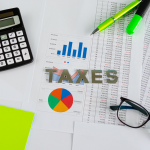Introduction to Tax Planning
Effective tax planning is crucial for small business owners in the UK, offering significant benefits such as improved cash flow, maximized profitability, and reduced tax liability. This guide will explore a variety of strategies to help you understand and take advantage of tax benefits and deductions legally, setting your business up for financial health and growth.
Understanding Business Structure Impact
The structure of your business greatly influences your tax obligations and opportunities for deductions:
- Sole Proprietorship: This structure allows business income to be included on your personal tax return, making administration simpler but possibly leading to higher tax rates as income increases.
- Partnership: Similar to sole proprietorships, profits are taxed as personal income for each partner but require more complex legal and financial management.
- Limited Company: Operating as a limited company can provide tax benefits such as lower corporate tax rates and tax-deductible business expenses. However, it involves more rigorous reporting and management.
Choosing the right structure depends on your business activities, size, and growth aspirations. It is crucial to review these as your business evolves.
Utilizing Allowable Deductions and Reliefs
Many small business owners are not fully aware of the deductions and reliefs they can claim. Here are some commonly overlooked opportunities:
- Home Office Costs: If you work from home, a portion of your utility bills, rent, and property taxes can be deducted.
- Travel and Mileage: Costs incurred from business travel can be claimed, provided proper logs are maintained.
- Professional Fees: Legal and financial advice related to business operations is fully deductible.
Staying informed about available deductions and meticulously keeping records can substantially reduce your taxable income.
Advantages of Capital Allowances
Capital allowances are a valuable tax relief for businesses, allowing you to write off the cost of capital assets against taxable income:
- Machinery and Vehicles: Costs for business machinery, equipment, and vehicles can often be claimed.
- Fixtures and Fittings: Investments in business premises improvements can also qualify.
Understanding how to leverage capital allowances can significantly reduce the tax you owe while fostering business investment.
Year-end Tax Planning Strategies
Effective year-end strategies can enhance your business’s tax position:
- Accelerate Expenses: Making planned purchases before the year-end can increase your deductions for the current tax year.
- Defer Income: Where possible, delaying invoices to push receivables to the next tax year can defer tax liabilities.
These tactics require careful planning to ensure they align with overall business health and cash flow.
Maximizing Relief on Research and Development
R&D tax credits are a government incentive designed to reward UK companies for investing in innovation. They are valuable for businesses developing new products, processes, or services:
- Eligibility: You must demonstrate that your project looked for an advance in science or technology and faced uncertainties.
- Claiming Process: Document your R&D activities comprehensively to support your claim.
Understanding how to effectively claim these credits can significantly reduce your tax burden.
Dealing with VAT
VAT management is a critical aspect of tax planning for many businesses:
- VAT Schemes: Choosing the right VAT scheme, such as the Flat Rate Scheme or the Cash Accounting Scheme, can simplify accounting and affect cash flow.
- VAT Registration: Registering for VAT is mandatory once your turnover exceeds the threshold, but voluntary registration can sometimes benefit your business financially.
Effective VAT management helps maintain compliance and optimize cash flow.
Planning for Growth and Scalability
Planning your tax strategy with growth in mind ensures scalability and sustainability:
- Future Tax Liabilities: Anticipate changes in your tax obligations as your business grows.
- Structural Changes: Consider whether changing your business structure could result in tax efficiencies.
Adapting your tax strategy to accommodate growth ensures that you are always positioned to take full advantage of tax benefits.
Conclusion
Implementing effective tax strategies is essential for optimizing financial outcomes in your business. From choosing the right business structure to understanding various tax reliefs and effectively managing VAT, there are numerous ways to enhance your company’s financial planning through astute tax management.
Small business owners should continually educate themselves on these strategies or consult with tax professionals to ensure they are maximizing their potential benefits. This guide provides foundational knowledge, but tailored advice from a tax expert can further refine and optimize your tax strategies.
Are you ready to improve your business’s financial health through effective tax planning? Consult with a professional to tailor these strategies to your unique business needs and ensure you are fully leveraging your tax benefits for maximum financial gain. For more information and resources, visit the HM Revenue and Customs (HMRC) website.







